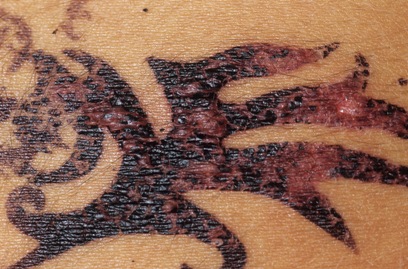 With multitudes of spring breakers hitting America’s beaches and boardwalks, the United States Food and Drug Administration (FDA) has issued an advisory warning young people of the potential hazards of temporary tattoos.
With multitudes of spring breakers hitting America’s beaches and boardwalks, the United States Food and Drug Administration (FDA) has issued an advisory warning young people of the potential hazards of temporary tattoos.
The FDA says that “black henna” — a substance commonly used in temporary tattoo “ink” to dye skin — may contain coal-tar based hair dyes, including some with the ingredient p-phenylenediamine (PPD). The FDA reports that PPD — by law, a substance that is not allowed in cosmetics that are designed to be applied to skin — can cause certain reactions, some of them serious and long-lasting.
The FDA has announced numerous reports from individuals complaining of blisters, lesions and in some cases, permanent scarring, as a result of receiving temporary tattoos, with some even reporting emergency room visits.
The FDA quotes a mother, who said that her daughter developed fluid-filled blisters after having a temporary tattoo applied to her skin. Another mother said that her daughter’s back resembled “the way a burn victim looks” after she received a black henna tattoo.
State regulations regarding temporary tattoo regulations vary, with the FDA reporting that in some instances, it is possible that no one is overseeing the practices of tattoo artists.
“Just because a tattoo is temporary” FDA Office of Cosmetics and Colors Director Linda Katz said, “it doesn’t mean that it is risk free.”
Photo courtesy of FDA. Allergic reaction on a 14-year-old girl. Dr. P. Marazzi/Photo Researchers.

























